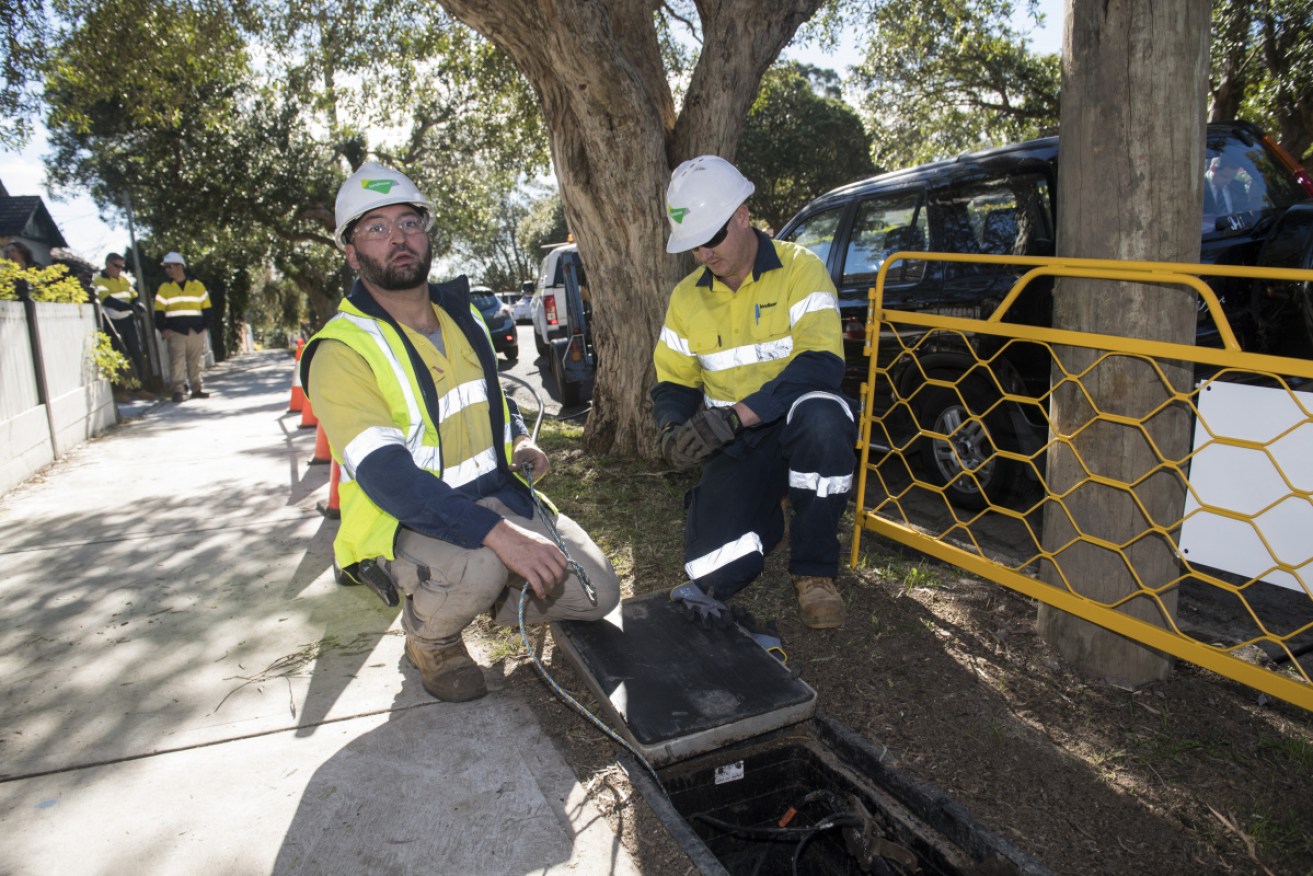NBN Co accused of ‘cynical attempt’ to shift consumers to pricier plans


Doubts have been raised about the NBN Co's proposed new high-speed plans. Photo: Getty
The nation’s broadband provider has unveiled new NBN plans that promise faster speeds, but consumers have been warned not to believe the hype.
On Tuesday, the NBN Co released its second consultation paper as part of a pricing review slated to wrap up in November.
The paper featured a proposal to add three new high-speed NBN plans to the four options currently available to consumers.
Only the slowest of the three high-speed options – a “100/20 bundle” offering download speeds of up to 100 Megabits per second (Mbps) and upload speeds up to 20Mbps – would be available to all fixed line NBN households.
However, one of the nation’s leading NBN experts told The New Daily the outdated copper technology used across much of the NBN means more than a third of consumers would see little improvement in the speed and reliability of their internet should they choose to upgrade.
Originally slated as a network that would deliver superfast fibre-to-the-premises (FTTP) for nearly every home and business in Australia, today’s as yet unfinished NBN is a “mixed-technology network” with users connected to the service via a hotchpotch of seven methods – including those that rely on old copper telephone wires – with quality, speeds, and reliability varying wildly.
The NBN Co’s newly proposed 100/20 plan is designed to appeal to the 65 per cent of consumers currently signed up to the nation’s most popular speed tier – the ‘Standard Plus’ NBN 50 (50Mbps/20Mbps), RMIT University telecommunications and network engineering associate professor Mark Gregory told The New Daily.
Consumers should be wary of what is a “cynical” ploy by the firm behind the $51 billion taxpayer-funded network to boost its ailing bottom line, while doing little to help those desperate for reliable high-speed broadband but stuck with outdated fibre-to-the-node (FTTN) connections, he said.
Households with FTTN simply won’t get value for money should they upgrade to the proposed plan in the hopes of reaching download speeds close to 100Mbps, Dr Gregory said.
“This is basically a cynical attempt to offer a product halfway between the [current most popular choice] 50/20 and the [current fastest, and much more expensive] 100/40,” Dr Gregory said.
Dr Gregory refuted the NBN Co’s claims that FTTN connections will be capable of achieving the maximum speeds touted under the newly proposed plan.
“People are not happy with the NBN’s FTTN, and people will be reluctant to pay for something that they’re not getting,” he said.
Academics and telco experts across Australia continue to warn that the Coalition government’s mixed-technology NBN “lottery” is creating a digital divide among Australians.
In May, explosive research showed that one in two households in Australia’s three biggest cities – Sydney, Melbourne and Brisbane – are being dudded with an inferior NBN connection.
The NBN Co did not answer questions put to it by The New Daily about the proposed new plans.
Controversial ‘Netflix tax’ scrapped
The NBN Co also revealed it would scrap a controversial so-called “Netflix tax” that would have seen NBN users charged more to access video streaming services.
News of the proposal was met with widespread outrage when it broke in July, with experts saying it highlighted the dire need for net neutrality legislation in Australia.
Net neutrality is the principle that internet service providers must treat all internet use equally, and not discriminate or charge differently based on the content accessed.
It is not enshrined in law in Australia as it is in other major jurisdictions, including Europe and Canada.
Australia last for affordable internet
The criticism follows yet another dismal international assessment of Australia’s broadband internet.
Last month, rankings compiled by the Commonwealth Parliamentary Library and released this week revealed that Australia places 36th – last – when it comes to broadband affordability in OECD nations.
Australian Communications Consumer Action Network chief executive Teresa Corbin said NBN affordability was a major issue for many consumers.
“We’ve seen the cost of entry-level broadband plans increase to the point that many Aussie households are paying around $60 per month for this now-essential service,” Ms Corbin said.








